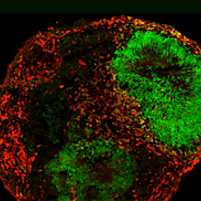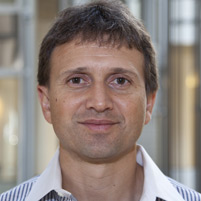Andrew Carnegie Prize in Mind and Brain Sciences


Ricardo Dolmetsch
Ricardo Dolmetsch has built models of genes associated with autism, setting the foundation for the development of new therapies to address unmet medical needs.
Carnegie Mellon University will award Dolmetsch, who is global head of neuroscience at the Novartis Institutes for Biomedical Research, with the second annual Andrew Carnegie Prize in Mind and Brain Sciences.
The prize, given by the Center for the Neural Basis of Cognition (CNBC) and funded by the Carnegie Corporation of New York as part of its centennial celebration, recognizes trailblazers in the mind and brain sciences whose research has helped advance the field and its applications.
"Dr. Dolmetsch's research is highly innovative and he has staked out pioneering terrain to help us understand the biochemistry of autism," said Marlene Behrmann, CNBC co-director and the George A. and Helen Dunham Cowan Professor of Cognitive Neuroscience at CMU.
"In particular, he has begun to identify gene mutations associated with the neurodevelopmental diseases and, furthermore, has gone beyond this to shed light on what the effect of the mutations are on the nervous system. The goal of his work ultimately is to alter the molecular biology of the brain cells to make them function more normally and this is a very exciting research program," Behrmann said.
Dolmetsch, who originally worked in biophysics, changed the direction of his research to focus on autism after his son was diagnosed with the disorder. As part of the award ceremony, Dolmetsch gave a presentation on "Insights Into the Brain of a Child With Autism" and discussed the progress this lab has made. He stressed that in order to develop effective treatment, the underlying genes, cells and behaviors all must be understood.
Behrmann said he gave a sobering and staggering saga of genetics and biochemistry. "I never imagined these kinds of things would be possible," she said. "It's really inspirational."
At Novartis, Dolmetsch leads the group responsible for leveraging advances in human genetics to model and treat neuropsychiatric and neurodegenerative diseases. Focal areas include genomics, induced pluripotent stem cells and brain circuitry.
Prior to joining Novartis in August 2013, Dolmetsch was associate professor of neurobiology at the Stanford University School of Medicine. He studied the molecular roots of autism and other neurodevelopmental disorders and the role of calcium channel signaling.
The CNBC, a joint program between CMU and the University of Pittsburgh, has helped establish CMU and the Pittsburgh scientific community as a world leader in the brain and behavioral sciences.
CMU research on brain-behavior relations also includes a major effort in using brain imaging to understand and treat disorders like autism and dyslexia. To build on its foundation of research excellence in psychology, neuroscience and computational science, CMU launched a Brain and Behavior Initiative to enhance the university's ability to innovate in both the laboratory and in the world.
The CNBC is administered through the Dietrich College of Humanities and Social Sciences.
Related Links: Dietrich College | Brain and Behavior Initiative | Center for the Neural Basis of Cognition
